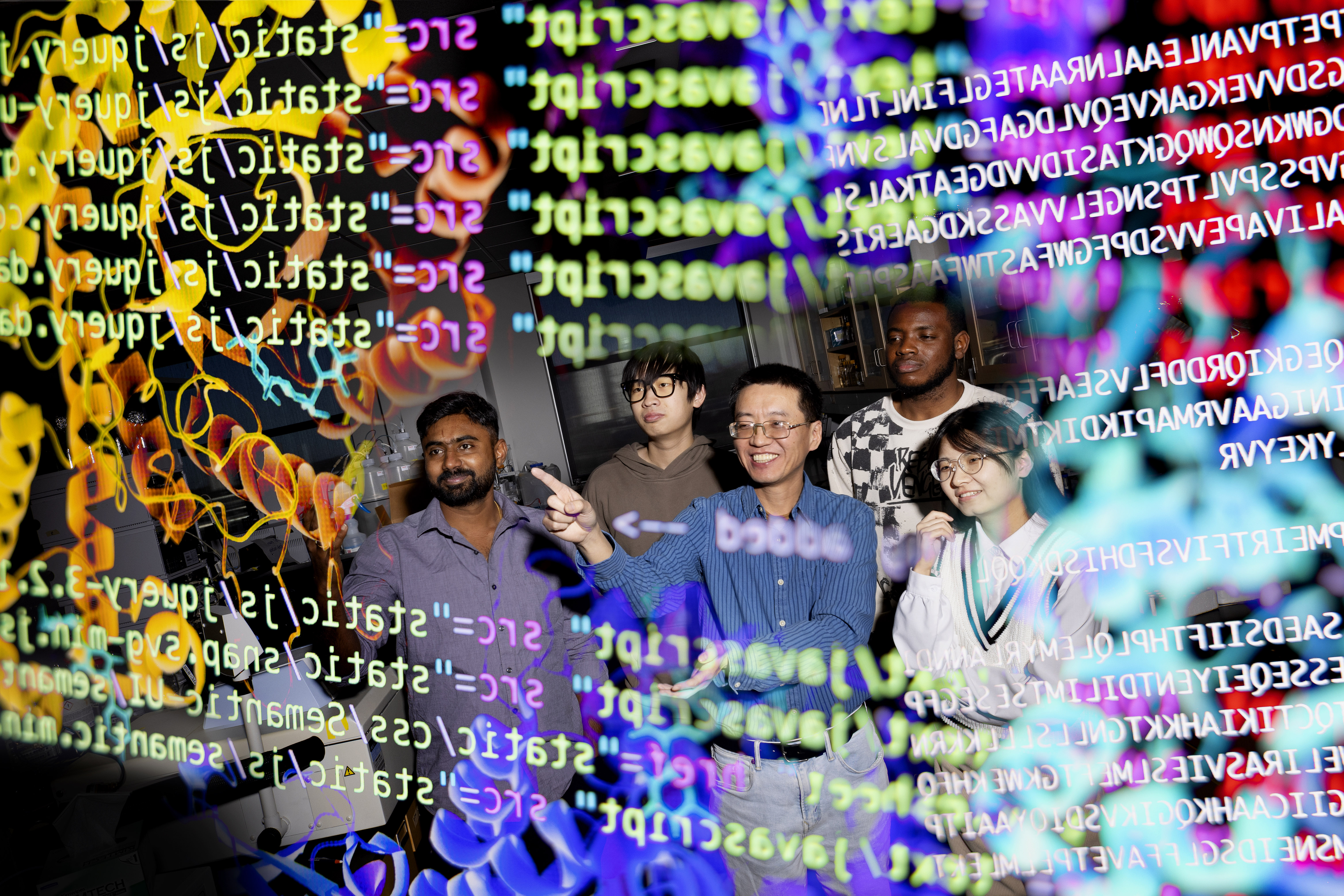
In five to 10 years, patients may be able to get individualized recommendations from health care providers on nutritional approaches specifically tailored to the bacteria living in the patients’ digestive systems, enabling them to ward off a host of diseases.
Yanbin Yin, a University of Nebraska–Lincoln scientist who has spent more than a decade gathering data to help make this personalized medicine a reality, is expanding the technology driving his research.
Yin likes to cite a quote from Hippocrates, a Greek physician considered the founder of modern medicine, some 2,400 years ago: “Let food be thy medicine and medicine be thy food.”
The science behind that saying has become clearer in recent years as scientists have studied what goes on in the human gut, said Yin, professor of food science and technology.
Yin’s role in the movement toward personalized medicine is to develop and hone computational models and informatics tools to identify carbohydrate-active enzymes — known as CAZymes — in the gut microbiome that can build, modify and break down various complex carbohydrates.
“In particular, microbial degradation of carbohydrates can produce a variety of metabolites, which have a profound impact on human health,” he said.
“If you give two different people the same diet, they will respond to it differently. One person might benefit from that diet, but person two would not just because their gut bacteria is different,” said Yin, a member of the Nebraska Food for Health Center.
This thinking is a significant shift from the historical approach in which doctors made most recommendations about disease prevention and treatment based on the expected response of an average patient. While this one-size-fits-all approach works well for some patients and some conditions, it doesn’t for others. Personalized medicine — or precision medicine — takes into account individual differences in patients’ genes, environments and lifestyles.
Yin initially developed software to gather CAZymes data in 2012. Known as dbCAN, the system’s algorithms learn and improve as data is added by researchers across the world. Supported by NSF CAREER and NIH R01 awards, the system can analyze and classify CAZymes at a more detailed level than ever before, looking for key features within genetic code to distinguish among different CAZyme groups and predict which dietary fibers are degraded by which CAZymes in the gut. The highly cited dbCAN web server has been serving hundreds of thousands of microbiome researchers around of the world in the past decade.
With additional support from the Office of Data Science Strategy of the National Institutes of Health, Yin is moving the tool from a desktop-based server to a cloud-based computing service that is expected to significantly improve data collection and analysis. The NIH also is supporting an enhancement of the system’s artificial intelligence/machine learning, which is emerging as a key component in understanding dietary modulation of human microbiome and applied personalized nutrition research.
Ultimately, here is how this information might be applied in health care: Doctors could test stool samples from their patients to identify the types of bacteria and CAZymes unique to their digestive systems. With the data gathered, doctors or dietitians could identify specific prebiotics and other dietary supplements to help prevent or alleviate diseases such as obesity, diabetes and inflammatory bowel disease.
Such analysis can be done now, to the tune of about $1,000 per patient, but the cost is coming down and the technology is expected to spread in the health care marketplace in the coming years.
Yin said this work is of intense interest to NIH, which has identified what it calls precision medicine as one of the key fields for improving human health in the 21st century.








